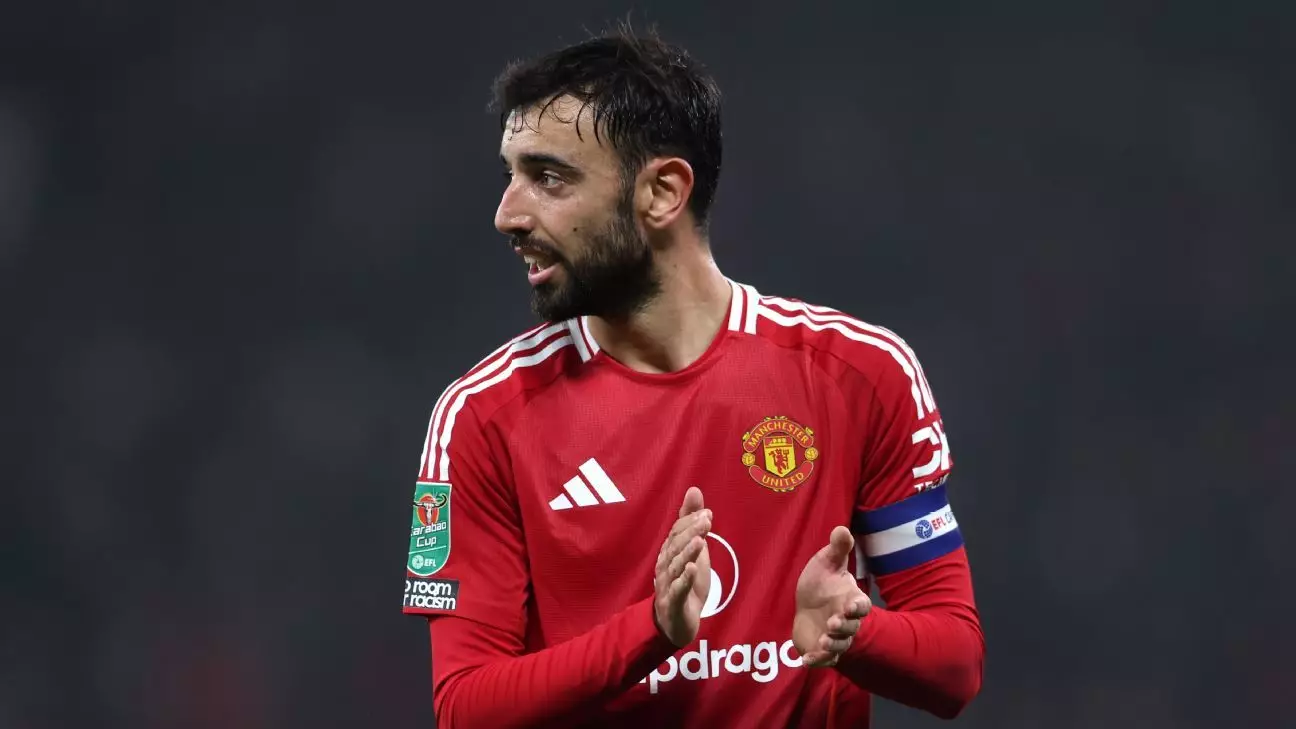In the wake of Erik ten Hag’s unexpected departure from Manchester United, the atmosphere surrounding the club has shifted dramatically. The Dutch manager was sacked after struggling to achieve the positive results that fans and management alike had hoped for. Just days later, Bruno Fernandes, the team’s midfield maestro, publicly expressed his sentiments regarding Ten Hag’s dismissal, recognizing the broader responsibilities that the players bear in this unfortunate scenario. The shared acknowledgment of accountability among players is a crucial step in navigating the tumultuous waters of managerial changes in professional football.
Ten Hag’s exit underscored a systematic failure. It’s appallingly common for football clubs to part ways with managers when results falter, thus placing undue pressure on a single individual while absolving a collective of players from their responsibility. As Fernandes aptly pointed out, it’s often more convenient for clubs to remove one person rather than overhaul an underperforming squad. This dynamic raises essential questions about leadership, accountability, and the culture within the team.
When Fernandes revealed that he had contacted Ten Hag to apologize, it showcased a sense of maturity and accountability characterized by emotional intelligence. Recognizing that the manager’s fate is tightly interwoven with the team’s performance, the Portuguese international took it upon himself to address his former boss respectfully. This gesture is not only symbolic but pivotal in restoring morale within a squad that has been under intense scrutiny.
“I feel responsible,” Fernandes said, highlighting the internal dialogue footballers must engage in after disappointing performances. Although the penalty he scored against Chelsea helped secure a draw, the fact remains that Manchester United has not been meeting expectations this season. This self-reflective approach is vital in sports, where individual performances can profoundly impact collective outcomes.
As Manchester United transitions to a caretaker arrangement under Ruud van Nistelrooy, the club appears to be at a crossroads. Described as a “difficult” week, the players, according to Van Nistelrooy, have been forced to introspect and confront their responsibilities head-on. This acknowledgment of self-assessment mirrors a philosophy that could facilitate substantial changes in both performance and attitude.
With another manager in place temporarily, the potential long-term implications of these changes remain to be seen. The uncertainty of Van Nistelrooy’s future, compounded by the anticipated arrival of Rúben Amorim as the new head coach, adds yet another layer of complexity to the club’s operational framework. Leadership transitions often yield diverse results, and the impending coaching changes can either uplift players or further demoralize them depending on how well the transition is managed.
For Manchester United, the immediate objective is clear: restore confidence and reinvigorate the squad. The club’s commitment to their fans, evident in their performance at Old Trafford, demonstrates a collective need to rediscover their identity. Facing Leicester City and POAK in the upcoming fixtures, the players have an opportunity to galvanize and prove their worth under pressure.
As Van Nistelrooy prepares to guide the team during this transitional phase, his views on the necessity of aligning with the new management structure will be critical. The willingness to collaborate with Amorim could foster an inclusive environment where players feel empowered to discuss strategies and expectations. Good communication, particularly during a coaching change, can facilitate smoother transitions and enhance team cohesion.
Manchester United finds itself navigating turbulent waters in the wake of Ten Hag’s dismissal. The emphasis on accountability brought forth by Fernandes signals a turning point, prompting a reevaluation of team dynamics and relationships. As the club readies itself for new leadership under Rúben Amorim, the emphasis must be placed on collective responsibility, clear communication, and unyielding determination to turn the tide on a challenging season. The journey ahead is fraught with uncertainties, but the potential for growth and resurgence remains palpable, provided the players commit to both personal and collective improvement. The footballing world will be watching closely.

